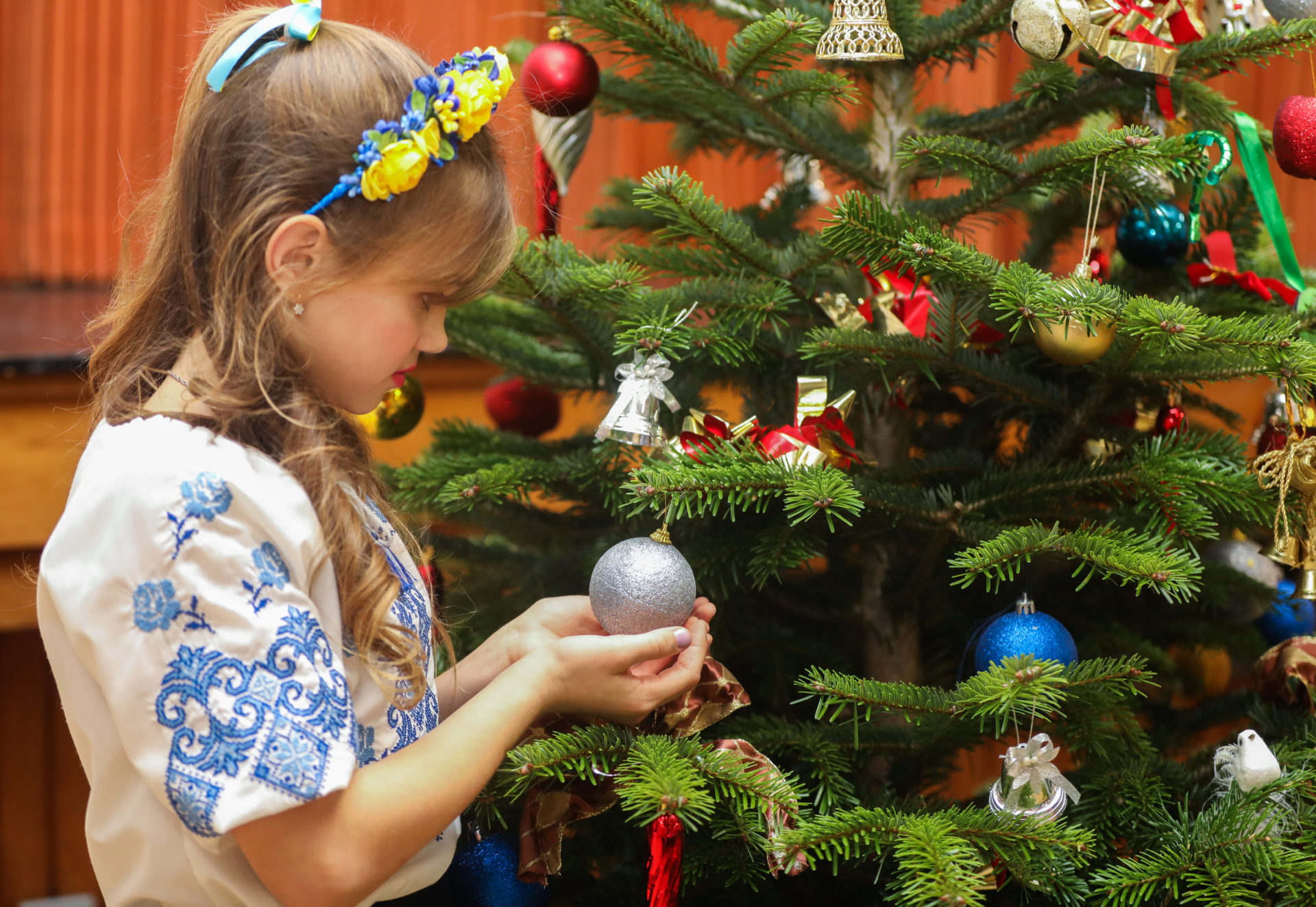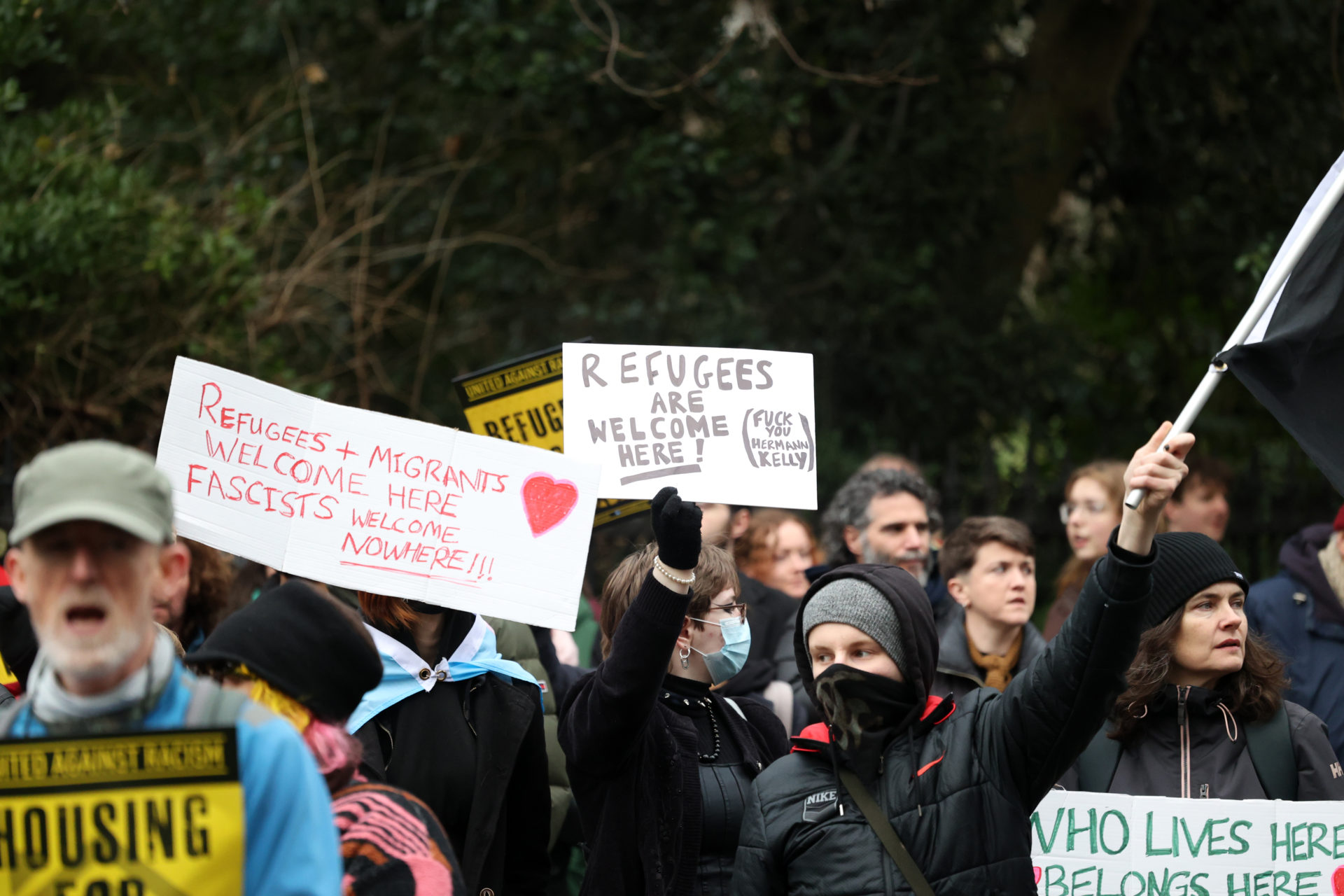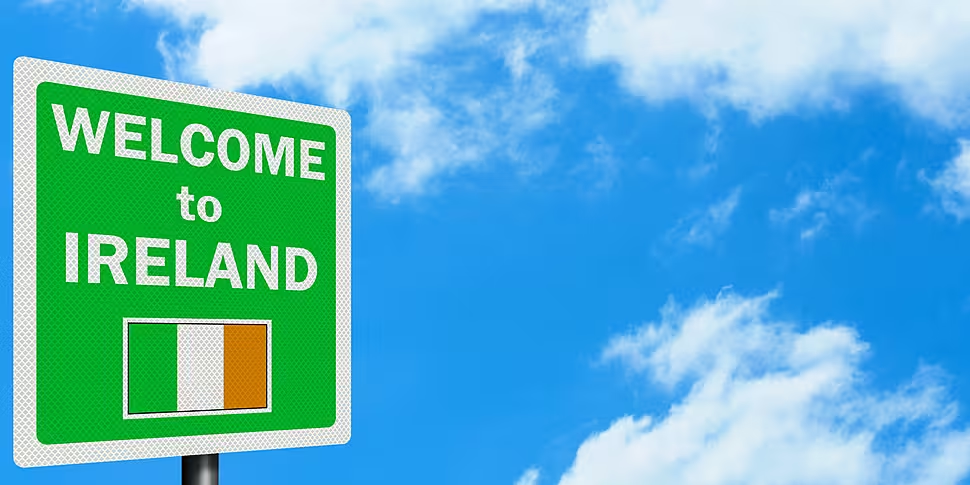Irish people are “always very calm and welcoming,” according to one woman who moved from Nigeria.
In the wake of a series of anti-refugee protests across the country, reporter Josh Crosbie spoke to The Pat Kenny Show about people who are adjusting to their new life in Ireland.
“The latest figures show there are more than 83,960 [refugees] between those who are fleeing Ukraine and international protection applicants,” he said.
“This compares with just over 8,575 at the end of February last year, so this has led to us having the highest level of immigration to the country since 2007.
“It just got me thinking about those who are coming here from completely different worlds – that trauma, the devastation of what they've experienced, and then to land here in Ireland.”
Ukraine
Josh visited the Ukrainian Community Centre in Rathmines, to speak with Manager Olha Khoroshevska, who moved from Ukraine to Ireland when the war broke out.
Olha said she found the “small talk” in Ireland to be a surprise when she first began integrating into Irish life.
“In Ukraine, we unfortunately don't have such culture and usually when we ask, ‘How are you?’, it means we are really interested,” she said.
“For people, especially those who've been coming during the first months of the war, it was a bit uncomfortable to talk to strangers.”
Olha said the centre helps Ukrainian families to get in contact with one another and offers activities to help with their mental health.
“Unfortunately, most Ukrainians, can't go to Irish counsellors because of the language barrier,” she said.
 02/12/2022 The Grand Opening of the Irish Red Cross / Ukrainian Action In Ireland Ukraine Community Centre in Rathmines, Veronika Nikitenko (age 8, Permission Granted) from the Ukrainian city of Kharkiv. The “Rathmines Centre” is located on the former Church of Ireland campus at 96 Upper Rathmines Road and is an important extension of the Irish Red Cross’ ongoing support for the Ukraine refugee community in Ireland. (Photograph: Leah Farrell / RollingNews.ie)
02/12/2022 The Grand Opening of the Irish Red Cross / Ukrainian Action In Ireland Ukraine Community Centre in Rathmines, Veronika Nikitenko (age 8, Permission Granted) from the Ukrainian city of Kharkiv. The “Rathmines Centre” is located on the former Church of Ireland campus at 96 Upper Rathmines Road and is an important extension of the Irish Red Cross’ ongoing support for the Ukraine refugee community in Ireland. (Photograph: Leah Farrell / RollingNews.ie)Eighteen-year-old Pavlo Kostianov moved from Ukraine in March 2022, after witnessing a bomb drop near his home.
“There are a lot of differences in Ukrainian and Irish culture, but I don't know how to explain it because it's like a feeling inside you,” he said.
“There were a lot of psychologists, Ukrainian and Irish, that were offering the free sessions”, he said, “I didn't use it because I believe that I can deal with it – maybe I need it.”
Africa Solidarity Centre
Daniel, the project manager from the Africa Solidarity Centre said they have seen a 20% increase in the number of people coming to the service.
“We work with psychologists … we run a Mental Health Awareness programme … we do assessments and then where necessary, we refer them to hospitals,” he said.
“We will host events like cultural events to help them marry the two different cultures so that they will be able to integrate effectively into the Irish culture.”
Judith from Nigeria said her experience moving to Ireland has not been difficult, as she had “welcoming people” around her.
“The people here are just naturally welcoming people, their expressions are always very calm and welcoming, even in the face of confrontation,” she said.
“The African Centre has been very helpful … you don't feel the geographic changes, it's home from home.”
 21/01/2023. Pro Immigration protests Dublin. Pictured Pro Immigration protesters face an anti immigration protest (NOT PICTURED) outside the Shelbourne Hotel. (Photo: Sam Boal/Rollingnews.ie)
21/01/2023. Pro Immigration protests Dublin. Pictured Pro Immigration protesters face an anti immigration protest (NOT PICTURED) outside the Shelbourne Hotel. (Photo: Sam Boal/Rollingnews.ie)Spirasi Clinic
The Spirasi Clinic which offers support for refugees and asylum seekers who've experienced torture and trauma, has seen a 300% increase in referrals since last year.
Executive Director Rory Halpin said in January of last year, the centre had five to 10 referrals per week but now sees up to 25 people per week.
“We have a remit to see people from war trauma situations such as Ukraine, but at the moment, we aren't seeing so many of those,” he said.
“People are being tortured and persecuted and very often because of their sexual orientation,” he said, “Up to 20% of the people that we see would be considered part of the LGBTQ+ community.”
“If we don't manage to look after the people as they come at this stage and treat them as soon as possible, then we're sort of hoarding problems for later on down the line.”









